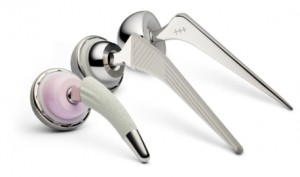If you have received a metal on metal hip replacement in the last several years, you may concern over whether your hip implant was recalled at some point. To quickly establish which hip device was used and whether it has been recalled, you can follow a series of three steps.
Contact Attorney Group for Texas for more information if you or a loved one received a hip replacement and suffered complications. At no out-of-pocket cost to you, we can answer your questions. If you have a case, we can connect you with an affiliated hip implant attorney who can assist you throughout the legal process.
Step One
The orthopedic surgeon who initially performed the surgery will have access to information about the hip replacement device used. If the surgeon is no longer in the area, the hospital or clinic where you had your surgery can most likely help you. Alternatively, it is possible to discuss the matter with your personal doctor. Today’s electronic medical records (EMR) will typically offer your doctor ready access to hip implant information. He or she would usually want to be up-to-date about your hip replacement anyhow, because it can impact various aspects of your health.
Step Two
If the hip replacement has been recalled, more information can be obtained via the Food and Drug Administration (FDA). This federal agency maintains a list of recalls on the web at FDA: Medical Device Recalls.
If the hip implant in question has not been recalled, it is possible to monitor possible recalls in the future by signing up for the FDA’s email notification service. Once the exact model is known, the manufacturer can also be contacted for additional information about whether increased monitoring is recommended, or whether hip revision surgery may be advised.
Step Three
If a recalled hip replacement is involved, it is possible to determine if any lawsuits have been filed regarding the device. Johnson & Johnson, Biomet and Stryker are among the manufacturers that have been named as defendants in certain metal on metal hip implant cases in Texas and elsewhere. Some of those with a recalled hip replacement in Texas have sought to be compensated for unpaid medical expenses, pain and suffering, lost wages, and other losses.
What Can Make a Hip Implant Defective?
It is important to note that either a non-recalled or a recalled hip replacement can cause a patient problems. Any hip device that is not properly aligned or successfully attached to the bone can cause complications. Excess friction between the ball and socket of an artificial hip joint may cause the release of metal particles into tissue in the area or the bloodstream. A misaligned joint may also lead to walking difficulties and severe pain. When an implant is not successfully anchored in the hip bone and pelvis, it may loosen, and the patient may experience excruciating pain.
Metal-on-metal hip implants have been the greatest concern overall. Sophisticated metal alloys were used in these designs, and cobalt and chromium were often used in the metal alloy to strengthen it. If a defective joint releases debris of toxic metals into the body, metal poisoning can occur.
Contact Us To Learn More
Legal options may be available to a recipient of a problem hip replacement, whether or not it has been recalled. To learn more, please contact us at Attorney Group for Texas. We offer consultations that are free, without obligation and fully confidential, and if you have a claim we can connect you with an affiliated hip replacement attorney you can assist you further.






